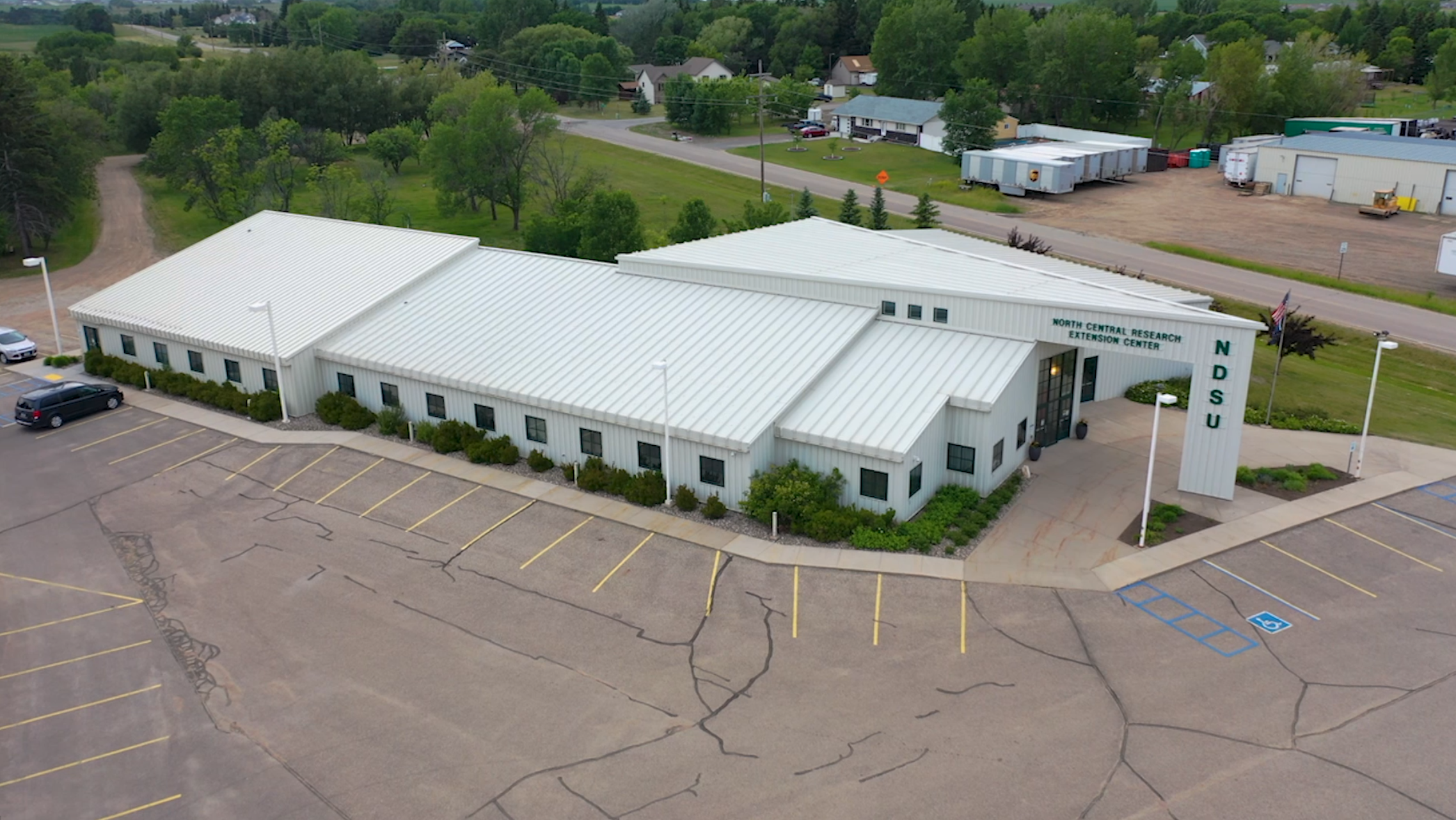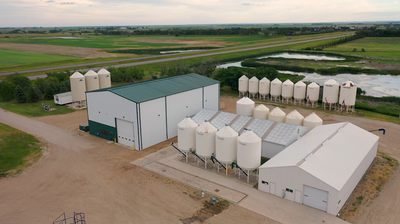NDSU North Central Research Extension Center

The NDSU North Central Research Extension Center is located one mile south of Minot on U.S. 83. Research programs include: profitability of crop rotation for durum, spring wheat and barley in north-central North Dakota. Included are sunflower, canola, dry bean, crambe, lentil, dry pea, and mustard. Nitrogen and sulfur fertility needs of small grains, dry bean and canola, commercialization of dry pea production and harvest, row spacing and plant population for sunflower and corn production, the timing of fungicide applications for canola, chickpea and small-grain disease protection. Extension programs were added to the existing research site in 1976 to cover 10 surrounding counties and Fort Berthold. A considerable amount of research and extension educational programs comes from a small number of experts at the North Central Research Extension Center. The Center was established in 1945 for agricultural field research and pure seed increase. Today, it specializes in crop research and Extension education activities, and in foundation seed production. The surrounding area includes the largest durum wheat producing counties in the state. Fifty percent of the nation's canola and forty percent of the nation's durum is produced in counties served by the Center. The Center is located on the border of North Dakota's two most prominent soil and vegetation regions - the dark brown soils of the semi-arid grassland in the west, and the black soils of central North Dakota's sub-humid grassland. With gently rolling land and 16.5 inches of annual precipitation, the Center's main research efforts involve grain variety evaluation, weed control, tillage and fertilizer tests. Research is conducted on small grains, oilseeds, row crops, legumes, forages and other specialty crops. Production is evaluated for no-till and conventional tillage cropping systems.
The seed increase program is a crucial part in the strategic planning and production of foundation seed in the state. The program produces seed on approximately 1,400 acres of owned, leased, and contract growers’ land and is committed to improve upon its mission to provide producers with diverse crops and varieties which are well adapted to the region. Newly released seed varieties are made available through county crop/agriculture improvement associations.
Cropping systems and production studies, seed company variety trials and breeder nurseries are evaluated in replicated small plot field trials at the Center. Cereal grains (barley, durum, HRSW, HRWW, oat, winter wheat, winter rye, corn, millet, triticale, specialty wheats), broadleaf crops (canola, sunflower, soybean, dry bean, safflower, mustard, dry pea, chickpea, lentil, flax, buckwheat) and many new or alternative crops are evaluated for their agronomic traits, seed quality and yield. No till verses conventional tillage systems are evaluated for barley, durum, HRSW and oat. Soil fertility studies are being conducted in cereal grains, flax, canola and dry bean. Chickpea and lentils are being evaluated to determine the influence fungicides, planting date and seeding rate to control the devastating disease ascochyta blight. Off-station research sites are being conducted to evaluate cereal grains, pulse crops, soybean, canola and field pea in other counties throughout north central North Dakota.
Weed control studies are conducted in small grains, canola, faba bean, sunflower, flax, dry bean, dry pea, lentil, chickpea, corn, soybean, and others. We evaluate new herbicides/adjuvants or different uses of existing products in various crops. Other experiments involve evaluation of the impact of different cultural practices such as crop rotation and conventional tillage vs no-till on crop yield, seed quality, weed control, and economic feasibility. We conduct IR-4 trials to collect data for registration of pest control products in minor crops. We conduct studies that target specific weeds such as Canada thistle, wild oat, foxtails, kochia, narrowleaf hawksbeard, horseweed, and others.

